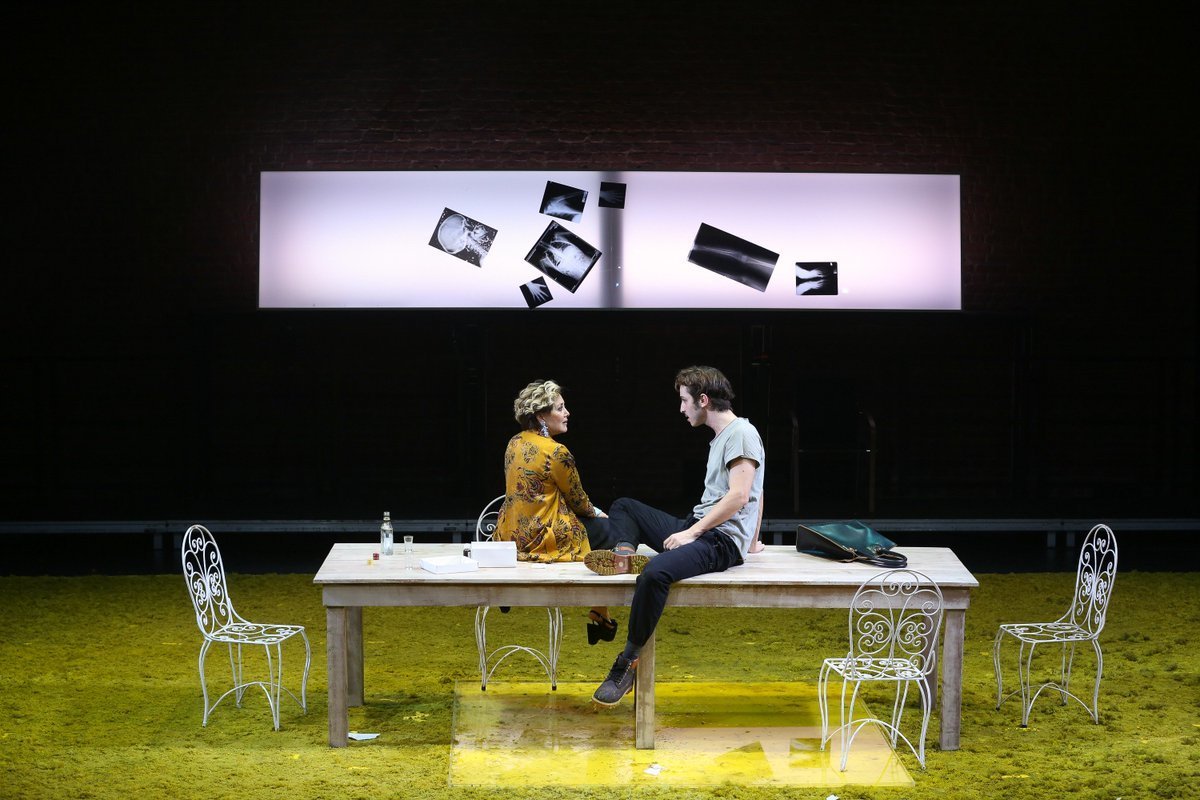Review: Purtelas Theatre's THE SEAGULL

After a sold-out season, The Seagull played its last performance of the year. The production, directed by Serdar Bilis, and adapted by Ahmet Sami Ozbudak, presents us a new and modern take of the timeless play that inspired countless writers with the problems it deals, and the closer look it gives to the human spirit.
Many scholars view The Seagull as a tragic play about 'eternally unhappy people' but Chekhov sees it as a comedy which sounds reasonable to me as the play pokes fun at the human folly. I do believe Serdar Bilis and Ahmet Sami Ozbudak see it the same way. This 100 minutes long version, is loyal to the playwright in every single way. It's funny, it doesn't miss anything Chekhov has underlined, and it is -really relatable.
The fog is the first thing that welcomes us as we enter the room, a signal of the upcoming 'cold air' that Arkadina (an aging actress) and Trigorin (a famous writer, and Arkadina's lover) will soon bring with themselves to this household owned by Sorin, the brother of Arkadina. Sorin lives with his nephew Treplev and, his estate manager and his family. They are not what we call 'a happy group' but they surely have some sort of 'stability'. However, the stability is broken as Nina, a free and an innocent girl with dreams, in relationship with Treplev, enters the stage and falls in love with Trigorin.
The tone of the entire production is set when Gonca Vuslateri's Masha utters the line: 'I'm in mourning for my life.' The audience is, then left with the characters that are going through existential crises, and trapped by unrequited love.
Communication (or we might call it, the lack of it) is another main issue the play deals with. The cast creates this image of a polyphonic choir whose choristers never listen to one another. Old Nina now Arkadina, Tilbe Saran, sweeps the stage with her diva-esque aura, accelerates the production with every movement. The way she watches Ecem Uzun's Nina might be one of the best things about her performance. Envy and sympathy is there in those stares that are sometimes quite scary as well. There is this girl, flying freely and capturing everyone's attention, no one wants to label her whereas Arkadina is constantly being simplified, labeled by everyone. She doesn't want to be called 'a goddess', she wants everyone to know that she is much more complicated than that: 'a woman'. Ecem Uzun's Nina is full of energy, very likable. She has the hearts of the audience as soon as she makes her entrance. However, she is a bit too childlike. It's quite a good take on the character that works for the first half of the production but doesn't carry the character to her last act. Boran Kuzum's Treplev is very relatable especially for the younger Turkish audiences: he is wild, yet an introvert. He is trying to find himself and his voice but no one's there to hear. The greatest success of this new version of the text lies in this character probably. The production captures the time, and the younger generation via Treplev. Firat Tanis is great as Trigorin, with his calmness, and his constant 'following the tide' mood. Gonca Vuslateri draws a Masha that is quite a watch with her drunkard goth-queen style. They are a great duo with Sevil Aki's Andryevna. The parallels between these two characters are presented really well. Serif Erol plays Sorin, also known as me in 30 years (I hope this will remain as a joke and not get real as I grow older), beautifully. Serdar Orcin is also very good as the Doctor.
The set designed by Gamze Kus, gives a lot of insides for the characters and the upcoming events. The characters are stuck in this square she designed for them. In the middle, there is this square shaped shallow little pond that represents many things throughout the play: hope, love, freedom and finally loss of hope.
Mr. Bilis manages to present an ensemble work with a star-studded cast. His uniqueness is, again, there for his audience that appreciates his form of art. The Seagull is definitely a must-see for the ones that couldn't see it this season.
Reader Reviews

Videos

